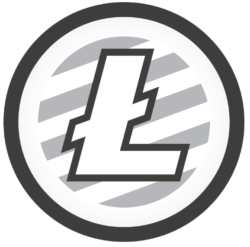Ethereum News About Blockchain Competitors
Ethereum news about blockchain competitors is both numerous and ominous for the popular service. No longer is Ethereum the only game in town when it comes to blockchain technology. In fact, there are a number of other blockchain projects that are vying for attention and threatening to bypass Ethereum. In this article, we’ll take a look at some of Ethereum’s biggest competitors and alternatives.
1. Bitcoin
As Ethereum continues to grow in popularity, many people are wondering what its biggest competitors are. Bitcoin is by far the most well-known and successful cryptocurrency, with a market capitalization of over $1000 billion. Ethereum, on the other hand, has a market cap of around $162 billion. This is actually quite significant when you consider that Ethereum is still a very new platform.
Bitcoin and Ethereum are two very different platforms with different goals. Bitcoin was designed as a peer-to-peer electronic cash system that could be used to make online payments. Ethereum, on the other hand, was designed as a decentralized platform that can be used to run smart contracts and create decentralized applications. While both platforms can be used to transfer value, they each have their own unique advantages and disadvantages.
Bitcoin’s main advantage over Ethereum is its long track record of stability and security. Bitcoin has been around for nearly 10 years now and has never been hacked. This is in contrast to Ethereum, which has suffered several major hacks in its short history.
Another advantage of Bitcoin is its network effect. Because Bitcoin is the largest and most well-known cryptocurrency, it has a large number of users and developers working on its platform. This makes it more likely that any new features or improvements will be adopted by the wider community.
Ethereum’s main advantage over Bitcoin is its flexibility. Because Ethereum is based on smart contracts, it can be used for a much wider range of applications than Bitcoin.
For example, Ethereum can be used to create decentralized exchanges, tokenized assets, and even DAOs (decentralized autonomous organizations). This flexibility makes Ethereum much more attractive to developers than Bitcoin. However, it should be noted that this flexibility comes with trade-offs in terms of security and stability.
2. Ripple
Ripple is a distributed open-source digital currency, and an open payment network within the currency itself is running on a decentralized peer-to-peer network. The Ripple network can process IOUs or payments denominated in various currencies.
Ripple is the native currency of the Ripple network and has a number of benefits over other digital currencies. First, it is designed to be a global currency, so it is not subject to the same inflationary pressures as other fiat currencies. Second, the Ripple network can process transactions much faster than the Ethereum network, making it ideal for businesses that need to send or receive payments quickly. Finally, Ripple has already established partnerships with some of the world’s largest banks, which could help it gain mainstream adoption.
3. Litecoin
Launched in 2011, Litecoin is a cryptocurrency that was built with the intention of being the ‘silver’ to Bitcoin’s ‘gold.’ Litecoin has a faster block time and a larger total supply.
Litecoin has often been referred to as digital silver, and it is one of the oldest and most established altcoins. It has a strong team behind it, and it is one of the more popular altcoins. However, recent years have seen Litecoin lose ground to some of its newer rivals.
4. Cardano
Cardano is a fully open-source, decentralized public blockchain and cryptocurrency project. It is also the first blockchain platform to be founded on scientific philosophy and built with academic research partnerships. The development team consists of a global collective of expert engineers and researchers. The dev team of Cardano created its proprietary blockchain technology, called Ouroboros, which uses a unique proof of stake algorithm that is based on academic research.
Cardano’s native currency, ADA, is already ranked in the top 10 cryptocurrencies by market capitalization and is traded on major exchanges.
It’s development roadmap consists of five eras: Byron, Shelley, Goguen, Basho, and Voltaire. These eras represent different decentralization levels.
Cardano’s vision is to plant the seeds of a more global, inclusive economy that enables universal access to fair financial services. Its goal is to be the most advanced smart contract platform while still being easy to use for both developers and end users.
5. EOS
EOS is a new smart contract platform that has been gaining a lot of attention lately. It is touting itself as a more scalable and user-friendly alternative to Ethereum. EOS was founded by block.one, a blockchain software company, and launched in June 2018.
Ethereum has been the dominant player in the smart contract platform space up until now, but EOS may be able to challenge that with its superior technology. It utilizes a delegated proof-of-stake (DPoS) consensus mechanism, which is intended to offer improved performance and security compared to other protocols such as proof-of-work (PoW).
EOS has already attracted some high-profile projects, such as Everipedia, an online encyclopedia that is migrated from Wikipedia, and Karma, a social media platform. In addition, EOS also boasts some impressive technical features, such as infinite scalability and zero transaction fees.
Criticisms of EOS include its centralization (due to its DPoS consensus mechanism) and the fact that it is yet to be fully tested on a live network. Nevertheless, EOS remains one of the most promising Ethereum alternatives and is worth keeping an eye on in the future.
6. NEO
NEO is a popular Ethereum alternative that was created in China. It uses a unique proof-of-stake consensus mechanism that allows users to earn rewards for holding and staking the NEO token. NEO also supports a wide variety of programming languages, making it a popular choice for developers.
Conclusion
Though Ethereum has been the clear leader in the smart contract platform space since its inception, its dominance is now in question as a number of well-funded competitors have emerged in recent months. While it is still too early to say definitively who will come out on top, it seems likely that the Ethereum network will face significant challenges in the coming years as it strives to maintain its position at the forefront of the industry.
Click here for another perspective from Swapzone.io.blog on top Ethereum competitors.
FAQs
Who are Ethereum’s Biggest Competitors?
In the Bitcoin category, HyperLedger holds a 23.09% market share, BitPay has a 7.10% market share, and BlockCypher has a 2.85% market share. These are Ethereum’s top three competitors.
Who Can Overtake Ethereum?
In terms of transaction fees, the Solana network may soon surpass the Ethereum network, which might have a big impact on Solana’s reputation as the “Ethereum killer.”
What is the ETH Prediction for 2025?
Ethereum is predicted to hit a maximum of $6,500 by 2025, with a minimum of $4,500 and an average of $5,500. Additionally, it is anticipated to increase to a maximum of $20,500 by 2030. The Dencun upgrade is scheduled for this year, and it is expected to have a beneficial impact on the value of ETH.

